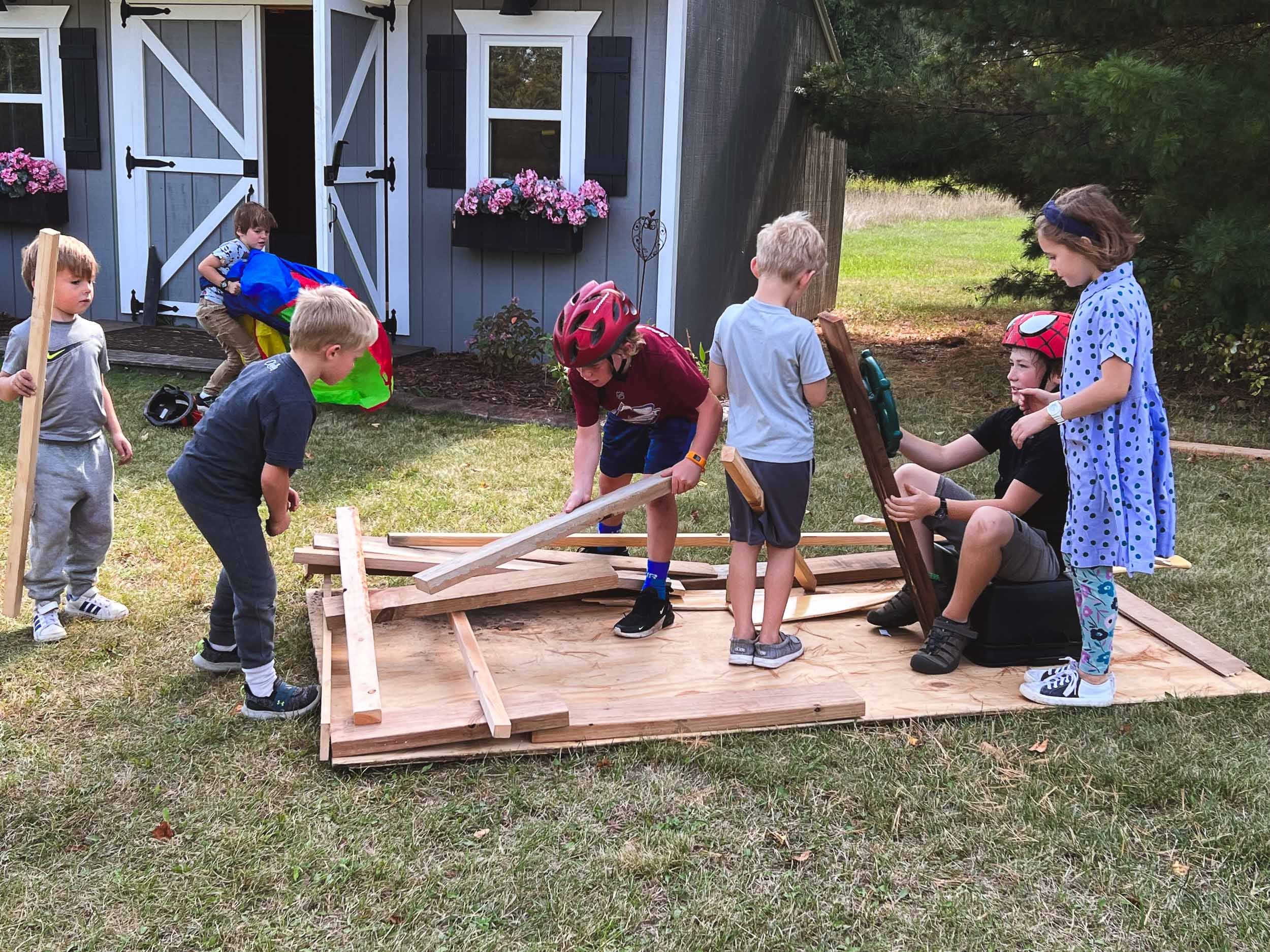
Resources
Are you interested in learning more about the philosophies we weave into daily life at LAKE Academy?
Below you’ll find a few of our favorite books and videos to further your understanding of educational models that are disrupting the traditional path.
Recommended Videos
LAKE Academy Terms
Independent Learner
Someone who can research questions, follow instructions, solve problems—admit that they don’t know something and figure out a solution when they hit a roadblock without asking an adult for help — participate in discussions, and strive for mastery.
Badge
LAKE Academy children celebrate the mastery of tools, skills and character by earning badges (not grades), assembling professional portfolios (not transcripts) and taking part in public exhibitions (not tests).
Parents use badges (not national exams) to track academic progress in Core Skills like reading, writing, math and spelling and character development.
Electronic and hard copy portfolios capture rough drafts, photos, videos and other creative work daily.
Public exhibitions at the end of most sessions allow LAKE children to present and celebrate their work to parents, extended family members, or the public for a real world test.
Blended Learning
A style of education in which students learn via electronic and online media as well as traditional face-to-face teaching.
Multi Age Learning Environment
At LAKE Academy, the Multi-Age Learning Environment is central to our philosophy of fostering personal growth, community, and individualized learning. This approach involves grouping students of different ages together in the same learning space, allowing them to learn at their own pace and from one another.
Quests
Quests are a five to six week long series of challenges, connected by a narrative and leading to an exhibition of the completed work.
Quests are designed to deliver 21st century skills, including learning how to apply Core Skills to develop something useful to an individual hero, a community or civil society.
An important part of Quests is that almost all have some way to measure and track outcomes, in a way that mirrors as closely as possible the real world. For example, if building a bridge, the costs are calculated based on the time and materials required to build the bridge, and the benefits calculated based on the span of the bridge, how much weight it will bear and for how long or the aesthetics based on feedback from citizens or a panel of experts.
Examples of Quests are:
A Survivor Quest, where children learn CPR, First Aid & Winter Survival
An Electricity Quest, developing patents for new electrical devices in Edison’s Menlo Park lab.
A Game Quest where LAKE children design computer games and board games, to be played by the general public as an exhibition.
A Detectives Quest that delves deeply into forensic science.
A Psychology Quest that requires dream interpretation, active imagination techniques and experiments in group psychology.
Guide
A Guide at LAKE Academy serves more as a facilitator or a mentor, helping students explore their interests and passions rather than dictating what they should learn and dominating the process. Our guides are more collaborative than authoritative as they focus on encouraging self-directed learning, nurturing personal growth, independence, and self-discovery. They reflect LAKE Academy's core values of freedom, health, community, and purpose-driven education.
Studio
At LAKE Academy, you won’t find traditional classrooms with children sitting in rows of desks. Instead you’ll find children of multiple age groups working together in studios (think art studio!) creating, learning, teaching and growing together in a relaxed and stress free environment. LAKE Academy offers multiple studios including our Sparks Studio (ages 5-7), Elementary Studio (ages 8-11) and Middle School Co-op (ages 12-14).






